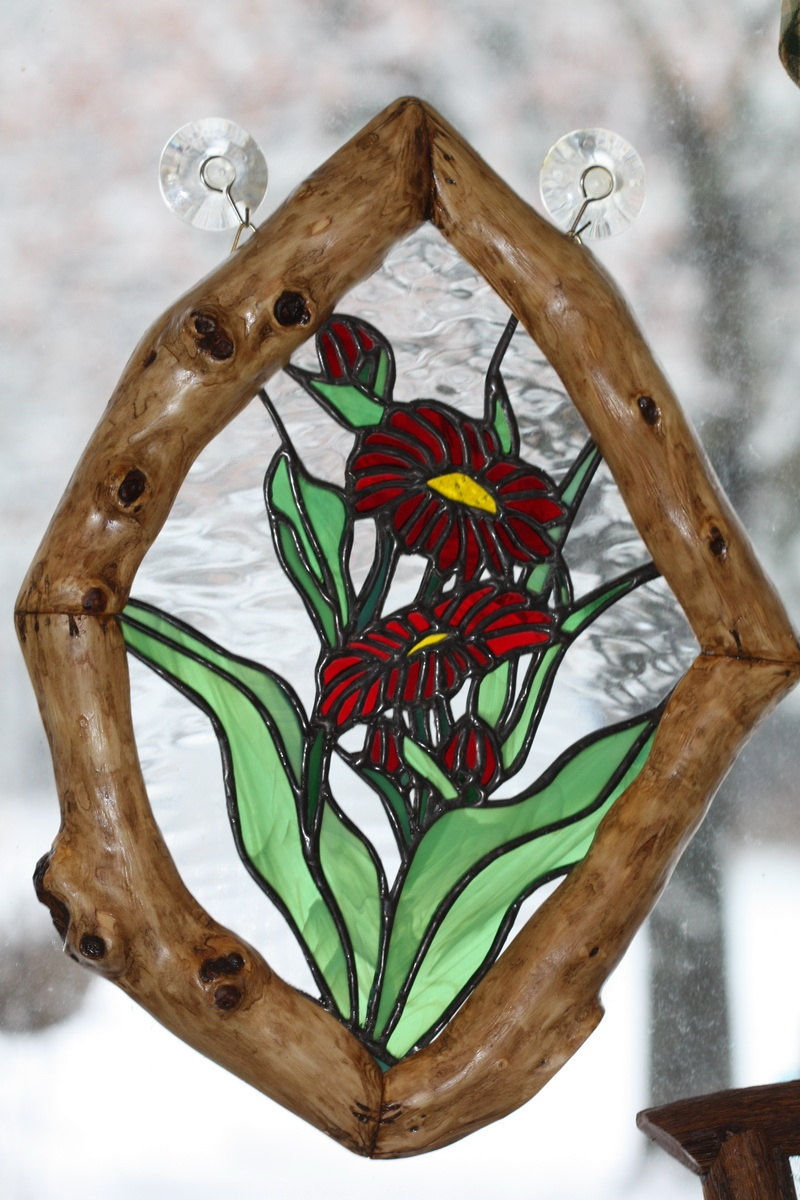Mixed Media with Stained Glass: Expanding Your Creativity
- Paul Urteaga

- Oct 7, 2025
- 2 min read
At Caveman Glassworks, we encourage our students to see stained glass not only as a traditional craft but also as a medium that can blend beautifully with other art forms.

Mixed media allows you to combine stained glass with wood, metal, resin, and even ceramics, creating pieces that go beyond a simple window panel. Whether you’re a beginner experimenting in class or an experienced glass artist, these combinations open new doors for design, texture, and storytelling.
Why Explore Mixed Media?
Stained glass has a long history of standing alone in windows and lamps. But when combined with other materials, it creates depth and contrast that glass alone cannot achieve. Students often find that mixed media:
Adds dimension and texture that highlights the glass.
Encourages creative problem-solving when joining different materials.
Allows for personal storytelling, blending found objects or meaningful keepsakes with glass.
Common Materials to Pair with Stained Glass
Wood

Wood frames or carved inserts bring warmth and a natural contrast to the reflective shine of glass. Students love using reclaimed barn wood or driftwood for rustic displays.
Metal
Copper, steel, or brass can serve as strong structural elements or decorative overlays. A forged metal vine with glass “leaves” makes for a striking wall hanging.
Resin
Clear or tinted resin can be poured around stained glass elements to create a sealed, lightweight design. It’s especially useful in jewelry or suncatchers.
Ceramics & Stone
Ceramic tiles or mosaic stones can border stained glass panels for a mixed-surface effect. Garden stepping stones (like our Mosaic Garden Stone Class) are a perfect example of this technique in action.
Tips for Students
Plan Your Design First – Think about weight, durability, and balance.
Mind the Adhesives – Epoxy or resin works best for glass-to-metal or glass-to-wood bonds.
Think Small at First – Try a suncatcher with metal or resin before tackling larger panels.

A modern stained glass suncatcher accented with green glass gems. Use Class Time – Our workshops encourage students to experiment with these ideas in a guided setting.
Final Thoughts
Mixed media isn’t about replacing stained glass — it’s about expanding your voice as an artist. By combining materials like wood, metal, resin, or ceramics, you create art that tells a richer story and showcases new dimensions of texture and light. Students who experiment with mixed media often find their work feels more personal and stands out in exciting ways.
If you’d like to strengthen your foundation before branching into mixed media, check out our post on Weller vs. Hakko soldering irons to make sure your tools are working with you, not against you. You can also explore our free stained glass patterns and tips for fresh design ideas to pair with other materials. Both will give you the confidence to push your projects further.




Comments